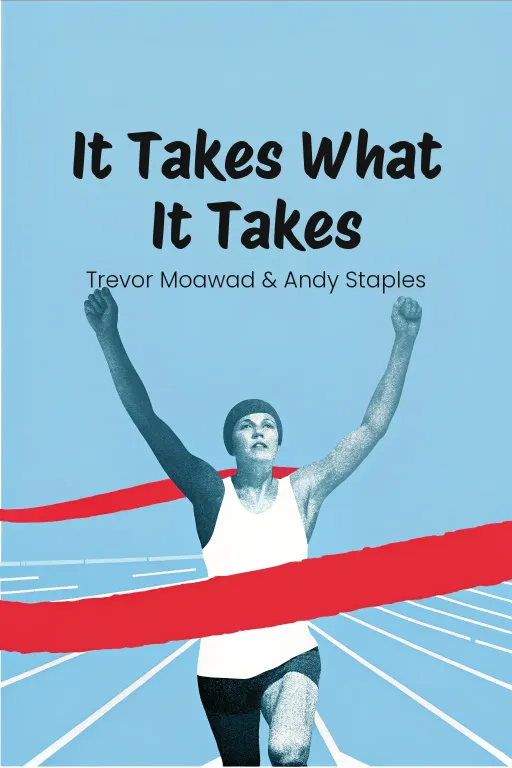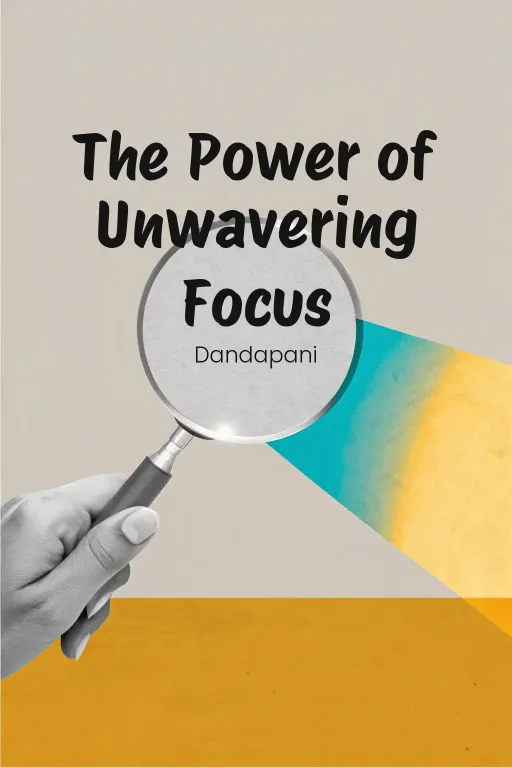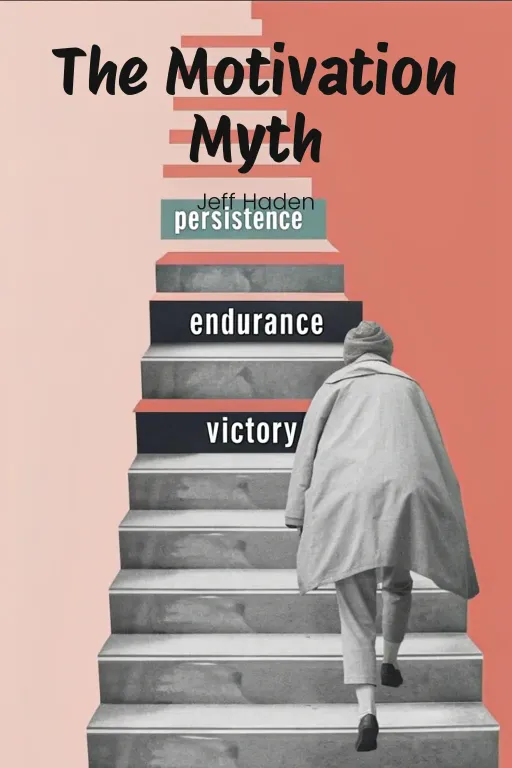
Ditch the To-Do List: Live Your Values Now!
Podcast by Beta You with Alex and Michelle
To Live, to Love, to Learn, to Leave a Legacy
Ditch the To-Do List: Live Your Values Now!
Part 1
Alex: Hey everyone, welcome back! Let me start with a question: Do you ever feel like you're just running in circles, you know, checking things off your list but at the end of the day, you're like, "Did any of that really matter?" Michelle: Are you spying on me, Alex? That's basically my Thursdays in a nutshell. It’s like my to-do list is the boss, and I'm just its, uh, highly paid servant. So, I assume you’re about to tell us how to break free from this endless cycle? Alex: Exactly! Today, we're digging into First Things First by Stephen Covey, Roger Merrill, and Rebecca Merrill. Now, this isn't your typical time management book. The core idea is that we actually have enough time, but we're usually focused on the wrong stuff. The authors show us how to look beyond just schedules and deadlines—what they call the "clock"—and instead, align our lives with our core principles which is the "compass." Michelle: Okay, so you're saying the solution to my overflowing email isn't just to answer faster and faster? I'm listening. Alex: Alright, so here's what we're going to cover today. First, we'll explore that tension between the "clock" and the "compass"—why only focusing on schedules often leaves us feeling empty inside. Then, we'll get into the Quadrant II framework, which is all about prioritizing those important, but not urgent, tasks that really make a difference. And finally, we'll talk about how aligning your daily life with your core values can transform your relationships, your personal growth, and well, pretty much everything. Michelle: So, this is part philosophy, part psychology, and maybe a little bit of a life coaching session mixed in? Alex: You nailed it! By the end of this, you'll have a totally new perspective on how you spend your time—and hopefully, on your entire life.
The Clock and the Compass
Part 2
Alex: Okay, so let’s really dig into this idea of “clock versus compass.” The authors basically argue that the real problem with time management isn’t about cramming more into your day. It's about making sure that how you “are” spending your time actually lines up with what you value most, your true purpose, you know? It's that clash between the clock—your crazy schedule—and the compass, representing your core principles, where things often go off the rails. Michelle: "Clock versus compass," what a great metaphor! But honestly, it sounds a bit… idealistic? How can we even think about grand personal values with all these deadlines constantly on our back? Isn't that just life? Alex: I see your point. Living by your compass can feel like a luxury. But when the clock completely takes over, it doesn't just stress us out; it disconnects us from what really matters, on a personal, emotional level, right? And the authors illustrate this with a pretty compelling story about a woman named Maria. Michelle: Maria… here we go with the archetypal cautionary tale. What's her situation? Alex: Maria’s a working mom with three young kids, juggling everything—diapers, career aspirations, the whole shebang. She's in this constant, frantic mode of trying to be the perfect mom while also killing it at work. But deep down, she feels this growing sense of dissatisfaction, stretched so thin that she feels like she's failing at everything. Michelle: Sounds like, well, most people we know. So what happened? She quit her job, hired a live-in nanny? How did she break out of it? Alex: That's the question, isn't it? Her turning point came when she opened up to a family member about how overwhelmed she felt. This person helped her realize that, at this stage of her life, she was letting the "clock"—the tasks, the schedules, the pressure to keep up—totally overshadow her compass. Motherhood, which was so important to her, had become this obstacle instead of a priority to cherish. Michelle: "Keeping up"—that really resonates. And it's not just parents; it's anyone trying to meet perceived expectations. So what did Maria actually “do” to change things? Alex: Her big realization was that her top priority wasn't ticking off every item on her professional to-do list at that moment. It was about embracing and enjoying the fleeting moments with her kids. It wasn't about abandoning ambition—just recalibrating her focus to align with her values for that specific season of her life. They call this "seasonal awareness," recognizing that priorities naturally shift depending on where you are in life. Makes sense? Michelle: Seasonal awareness… I like that. So, it's kind of saying, "It's okay to focus more on one area of your life right now, because it won't always be this way." That feels… freeing. But also, a little… counterintuitive? Almost like admitting you can't "have it all." Alex: Exactly! And the book is clear: Trying to "have it all" without first considering whether that "all" even matters to you is what leaves people drained and unfulfilled. Maria’s situation is about motherhood, but it’s a universal principle. Think of the overworked executive constantly glued to his phone, skipping family dinners to handle work emergencies. Sure, he's productive, but eventually, he starts to feel hollow. We've all seen, or been, that person. Michelle: Definitely been that person. And then people justify it with lines like, "It's just a busy season," or "Once “this” project is done, I'll rebalance." But that never seems to happen. Why is it so hard to break that urgency addiction? Alex: Because urgency is seductive! You get this momentary high, this illusion of accomplishment, when you finish something urgent, even if it’s ultimately not that important. The book actually calls it the “urgency addiction.” And it’s not just personal; it’s systemic. Workplaces constantly reward urgency over importance. You're seen as a hero for putting out fires, but no one acknowledges the person who is proactively working to prevent the fire in the first place. Michelle: Aha! The firefighter analogy! That's good. We're always celebrating the people running around with water buckets while ignoring the one trying to fix the wiring so it doesn't spark. Makes total sense. But where do you start if you're already stuck in firefighting mode? Alex: It starts with reflection. The book emphasizes stepping back and asking yourself the big questions. Are your actions this week in line with what “really” matters to you? If you don't pause to figure out where your compass is pointing, you'll just keep reacting to the clock. Things like journaling, weekly reviews—they help you stay grounded in your long-term goals. Michelle: Practical advice, I'll give you that. But, let's be real—most people will say, "I don't have time to reflect, Alex." Because that's the real irony, isn't it? You need time to reflect on how you're spending time. Alex: Exactly! But that's where the clock-compass reframe is so helpful! It shows that the time you spend reflecting and planning isn't wasted. It’s an investment! It’s not about setting aside hours; even just a few minutes each day to check in with your compass can anchor you so you're not constantly tossed around by urgency. Michelle: It does, and it's, well, humbling. You realize how often you let life just take over instead of steering it. So, would you say Maria’s story and all this urgency talk boils down to this: replacing mindless busyness with intentional action? Alex: That's definitely a core takeaway. The idea is to stop “managing” time and start “leading” your life. When your actions are guided by your personal compass, you're not just checking off boxes; you're building something meaningful. And “that's” where the real emotional fulfillment comes in. Michelle: Okay, you've convinced me to… at least think about it. That's as far as I'll go before I promise to journal and then fail to buy a notebook! So, what’s next up in our exploration of “First Things First”?
Quadrant II Time Management Framework
Part 3
Alex: So, understanding this disconnect naturally pushes us to find a way to actually prioritize what truly matters, right? That's where the Quadrant II Time Management Framework comes in. Building on that problem we just talked about, it gives you a practical way to realign your priorities. I think of it as the “action” part of our conversation today. So, Michelle, ready to try and sort your crazy to-do list into four boxes? Michelle: Four boxes, huh? Well, if this thing can actually make sense of the mess I call my daily schedule, I'm willing to give it a shot. Lay it on me—what's the deal with these quadrants? Alex: Okay, so basically, we divide everything we do into four categories, based on two things: how urgent it is and how important it is. Quadrant I is where a lot of us live most of the time. These are the things that are both urgent and important. You know, crises, deadlines that can’t be missed, and major responsibilities that are screaming for your attention. Michelle: Ah, so the "everything's on fire" category. Sounds a lot like my email inbox, to be honest. Alex: Exactly! But here's the thing: a lot of those "fires" are self-inflicted. They happen because we didn't plan well or we ignored things that were important earlier on. Like, that last-minute project thing? Probably happened because you didn't anticipate it and get started on it sooner. Michelle: Okay, so the classic “didn't do the homework, now it's due tomorrow” problem. Got it. But hey, you can't plan for everything - what about real emergencies? Alex: Good point. The framework does acknowledge that some Quadrant I stuff is just unavoidable. But the goal is to dial down the whole reactive, panic mode by spending more time in Quadrant II – those important, but not urgent, tasks. This is what they call the sweet spot of effective time management. Michelle: Important, but not urgent? Sounds suspiciously... peaceful. What magical things live in this quadrant? Alex: Magical indeed, because these are the activities that drive your long-term success and well-being. Developing your skills, nurturing relationships, taking care of yourself, planning for the future—all Quadrant II. The catch is, these things don't demand your immediate attention, so they're easy to push aside. Then, boom, they either explode into a Quadrant I crisis, or you just never get to them. Michelle: Right, like flossing. No urgency... until you're sitting in the dentist's chair, and suddenly it's Quadrant I and pain. Alex: Exactly! Perfect example. Staying in Quadrant II is about being proactive, investing in things that prevent the Quadrant I freak-outs. A good manager, for example, might block off time each week for strategic thinking or learning new skills. Then, less last-minute stress around deadlines or workplace fires. Michelle: Okay, it’s not all sunshine and self-improvement, I get it. Hit me with Quadrants III and IV. What's hiding in there? Alex: Quadrant III is where "urgent" meets "unimportant." Stuff that feels pressing, but doesn't actually move you toward your goals. Think constantly checking email, sitting in meetings where you don't really need to be, or dropping everything to handle someone else's tiny problem. Michelle: The “yes-man” quadrant. You're trying to be helpful, be a people pleaser, but your own stuff gets put on the back burner. Alex: Yup. And then we have Quadrant IV – the “Not Urgent and Not Important” zone. This is pure time-wasting territory. Binge-watching TV, endlessly scrolling social media... A little bit of this is fine for a mental break, but living there leads to feeling unsatisfied. Michelle: I'm just gonna say it – Quadrant IV sounds kinda fun. But okay, I get it. Too much of it, and you're just avoiding the stuff that matters. Here's a question for you though: if Quadrants III and IV are so obviously a bad use of time, why do we keep falling into them? Alex: Because they're easy! Quadrant III makes you feel busy, and we often confuse that with actually being productive. And Quadrant IV? Instant gratification. It numbs you to the feeling that you might be avoiding work that actually matters. The whole point is to recognize these traps and reallocate that time to the meaningful stuff – Quadrant II. Michelle: Meaningful, sure, but let's get practical. You can't just wave a magic wand and reorganize these quadrants. Where does someone even start? Alex: Well, the book talks about a technique: weekly planning. You set aside time regularly to think about your different roles – parent, professional, friend, whatever – and then identify Quadrant II goals that fit those roles. Once you've identified your “big rocks,” you schedule those first. Michelle: The big rocks! I like that. So, let me guess: once you've locked in the big rocks, it's easier to squeeze in the smaller stuff – emails, errands – without letting them take over. Alex: Exactly! It forces you to be intentional. If a goal of yours as a parent is to create a stronger relationship with your child, then scheduling family game night takes precedence before agreeing to a work meeting you might not even truly need to attend. Operate consciously, and those smaller, less important things will naturally fall into place without detracting from what truly matters. Michelle: Makes sense. I can see how this could, over time, shift your day-to-day experience. Sounds like more than just ticking boxes off a to-do list—it’s value-driven living. Alex: That's the whole point! It’s not about cramming more into your day; it's about focusing on the right things. You reduce energy expenditure fighting fires in Quadrant I and invest more energy building a life you value by focusing on Quadrant II. Michelle: Big claims, Alex. But, I'll admit, I'm intrigued. Maybe it's time I stopped treating my schedule like some kind of battlefield and aimed for this “Quadrant II calm.” So, what's next?
Principle-Centered Living and Leadership
Part 4
Alex: So, with that framework in place, let's dive deeper into how our individual skills and relationships can actually boost this alignment. That brings us to the concept of Principle-Centered Living and Leadership, which is “really” about stepping back and looking at the bigger picture. It's not just about managing your time effectively, but about how aligning your actions with your core values can, you know, lead to personal growth and create more harmonious relationships with the people around you. Michelle: Okay, so we're not just talking about to-do lists anymore. We're talking about impacting the way we live, and even lead? That's quite a leap. So, where does one even begin with something like that? Alex: It starts with you, with something called a “personal mission statement.” It's essentially a formal declaration of your "why"—your core values, your purpose, and what you aspire to become. It's not just some feel-good exercise; it's a tool that guides your decisions and shapes your priorities daily. Michelle: A personal mission statement? Seriously? People actually sit down and write these things? Like, “Today, I declare myself the CEO of my own destiny!” Doesn’t that feel a little, I don't know, forced? Alex: I get where you're coming from, it might seem a little over the top. But think of it as a deeply reflective journey. It's about asking yourself the “really” hard questions, like, "What do I want my legacy to be?" or "How can I genuinely contribute to the lives of others?" The book shares a story about a leader who realized how out of sync her work habits were with her values. She was constantly missing family dinners, always prioritizing work, and yet, she still felt unfulfilled. Michelle: Ah, so she writes this dramatic mission statement, has a life-altering epiphany, and poof, everything is perfect? Sounds a bit too neat and tidy, doesn’t it? Alex: Not exactly! It wasn’t an overnight transformation; it was a daily commitment. Every morning, she checked in with her mission statement. She would ask herself, "What can I do today that reflects my values?" Slowly, her choices began to shift. She consciously made an effort to protect that family time, ensuring they had uninterrupted dinners and keeping weekends work-free. This, you know, brought a sense of peace and fulfillment not only to her family, but also to her career. Michelle: Okay, so it’s less about setting some lofty goals, and more about actively realigning yourself every day to live by them. But life isn’t static, right? What if your values change, or your priorities shift over time? What then? Alex: That's where tools like reflective journaling come in handy. By regularly checking in with your feelings and actions, you can start to see patterns of misalignment or recurring dissatisfaction. For example, if you often feel drained after overcommitting at work, it might be a sign to reassess and dial it back. Regularly revisiting and revising your mission statement ensures that it stay relevant as you navigate through different stages of life. Michelle: I like that—it’s like tuning an instrument to keep it sounding its best. But let me play devil's advocate here: what happens when your values come into conflict with the demands of the real world? Say your boss expects you to work late, but your personal mission statement emphasizes family time. What do you do then? Alex: That's the tricky part, where intentional living requires courage and flexibility. You can't just ignore outside demands, but the goal is to negotiate and reassess, so you're not constantly sacrificing your core values. This might mean having some honest conversations at work or learning to say "no" a bit more often. The point is to avoid letting external pressures completely dictate your path. Michelle: Fair point. I guess if you don’t stand for something, you’ll fall for anything, right? Alright, so hit me with the next level—how do these principles extend to the people around us? Alex: Now we're moving into the realm of shared missions, which are essentially a collective version of the personal mission statement. Whether it's a family, a team, or an organization, creating a shared mission brings everyone into sync, encouraging trust and cooperation around a common purpose. Michelle: Okay, so a mission statement for a collective. I feel a family dinner story coming on. Go ahead, surprise me. Alex: you anticipated! The book tells of a family who felt disconnected because everyone was too busy to connect. So, they decided to create a shared mission statement together during weekly Sunday morning family meetings. They would review their values and set collective goals, like prioritizing family traditions or supporting each other's milestones. The result was deeper accountability and understanding as they worked as a team to align their lives around what truly mattered most to them. Michelle: A family with weekly meetings? Ambitious, to say the least. But I see how those honest check-ins could build trust and connection. Does the concept translate to the workplace? Alex: Absolutely. Take a tech startup that aimed to improve accessibility for people with disabilities. Their mission wasn't dictated from the top down; it grew organically through workshops where employees from various teams contributed ideas on how to make this vision a reality. Everything from the app design to the marketing strategies reflected this shared purpose. The result was more innovative solutions and a highly engaged, motivated workforce. Michelle: Win-win, I presume? Employees feel valued and connected, because their work has real meaning, and the company thrives because everyone’s on the same page. Alex: Exactly! But here's the key: inclusivity. Everyone, from the CEO to the interns, has a voice in shaping the mission. It’s not enough to create it once and then forget about it. Regular dialogue ensures that evolving priorities are always integrated into the larger picture. Michelle: I appreciate the idea of evolution – it makes these missions dynamic, and not just set in stone. But let’s not overlook the glue that holds all of this together: trust. I mean, without trust, no mission, personal or shared, is going to go anywhere, right? Alex: Trust is fundamental, it creates open communication, collaboration, and ultimately synergy. The book talks about a manager whose team had become disengaged. The root cause? A lack of trust, fueled by her inconsistent communication and a focus on results over building relationships. She rebuilt trust with small actions – active listening, keeping her promises, and addressing team concerns. Morale shifted, and the team's output improved. Michelle: So, it’s not necessarily these grand gestures that rebuild trust, but small, consistent actions that build up over time, right? I assume the same applies to our personal relationships, no? Alex: Definitely. One family, for instance, started having weekly "trust circles" where everyone could share their thoughts and feelings without judgment. This cultivated a sense of emotional safety, helping to heal old wounds and strengthen their bond. It's these, you know, intentional acts that transform relationships. Michelle: Alright, I’m convinced. Whether it’s your life, or your leadership, alignment combined with trust leads to something truly transformative. Any final thoughts? Alex: The core message here is that principle-centered living “really” isn’t just about improving your time management or relationships, it’s about authenticity. When your actions align with your values, and when those values unite the people around you, that's where true growth and harmony take hold.
Conclusion
Part 5
Alex: Okay, so to recap everything we've talked about today, we've really unpacked the main ideas from “First Things First”. We started with that central tension, right? The clock versus the compass. It's not about just squeezing more “stuff” into your day, but about making sure your time actually reflects what you value most. We also went over the whole Quadrant II idea, focusing on those important, but not urgent, tasks. And that shift can really prevent a lot of fire-fighting while moving you towards those bigger, more meaningful goals. And finally, we talked about living and leading with principles. When your values are aligned, both personally and with others, that really transforms everything, from your schedule to your relationships, and even your overall sense of purpose. Michelle: Right, exactly. If there’s one thing that really stuck with me, it’s this: urgency doesn’t automatically equal importance. Think about it, it’s so true! Living intentionally, whether we're talking about blocking off time for things that truly matter, or building trust with the people around you, is always going to be more fulfilling than just constantly reacting to whatever's thrown your way. Alex: Precisely! So, we have a little challenge for our listeners this week. Take just five minutes today to really think about your compass. What is one Quadrant II priority, or maybe a guiding value, that you've been kind of neglecting lately? Just write it down, make a plan, and then start working on it this week. As the book so rightly points out, life is not about time management, it is about leading with purpose. Michelle: Well said, Alex. Alright everyone, until next time, remember to lead your life, Don't just manage a to-do list.









